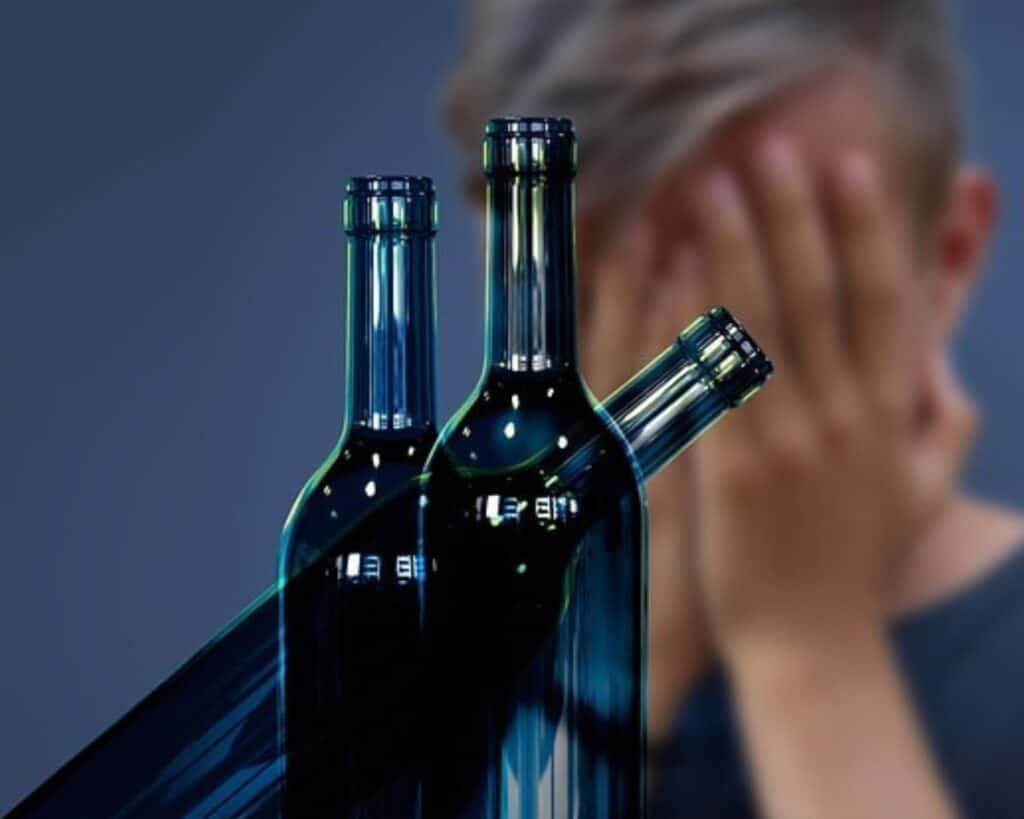Recognizing The Signs of Alcohol Abuse
If your alcohol use is getting out of control, you may not be the first to notice it. You may be in denial about your condition, but it’s likely that your family, friends, or coworkers can recognize the signs.
Alcohol abuse can have a lasting impact on an individual’s physical health, relationships, and daily functioning. Identifying the warning signs early on can help address the issue before it escalates into a more severe problem.
By being aware of how alcohol affects behavior, tolerance, and daily life, individuals and their loved ones can take proactive steps toward seeking support and fostering recovery.
Understanding these signs not only aids in managing alcohol abuse but also promotes overall well-being and healthier lifestyle choices.
Early warning signs of unhealthy alcohol use can vary, but some common indicators include:
- Increased Consumption: Drinking more than usual or frequently consuming alcohol.
- Neglect of Responsibilities: Falling behind on work, school, or home duties due to drinking.
- Changes in Behavior: Becoming more irritable, moody, or secretive about drinking habits.
- Risky Behavior: Engaging in dangerous activities, like driving under the influence or risky social behaviors.
- Social Withdrawal: Avoiding social activities or relationships to focus on drinking.
- Health Issues: Experiencing frequent hangovers, stomach problems, or other health concerns related to drinking.
- Financial Problems: Facing money issues due to spending on alcohol or related consequences.

Alcohol Abuse and Addiction (Alcohol Use Disorder)
Have you ever wondered how alcohol abuse differs from alcohol addiction? It’s a common question and an important one if you or someone you care about is struggling with drinking. Both alcohol abuse and alcohol addiction involve excessive drinking, but they aren’t the same thing.
Alcohol abuse might mean drinking too much and facing consequences like trouble at work or in relationships, but it doesn’t always involve physical alcohol dependence. Alcohol addiction, however, goes a step further—it’s about a deep, often uncontrollable craving for alcohol, and it can lead to serious physical and psychological dependence.
So, how do you tell the difference, and why does it matter? Understanding these nuances can help you find the right help and support to tackle the issue.
Request a 100% Confidential Callback
If you or a loved one are struggling with substance abuse and mental health problems, contact our drug and alcohol rehab center in the Greater Boston area to talk confidentially with an addiction specialist. For immediate help, call (978) 878-3677 or fill out the form below, and we will get back to you as soon as possible.
"*" indicates required fields
Alcohol Abuse
Alcohol abuse involves serious alcohol misuse or excessive consumption of alcohol that can lead to negative consequences. Signs of alcohol abuse include:
- Binge Drinking: Consuming large quantities of alcohol in a single session.
- Risky Behaviors: Engaging in dangerous activities while under the influence, such as driving.
- Frequent Blackouts: Experiencing memory lapses or periods of amnesia related to drinking sessions.
- Legal or Financial Problems: Facing legal issues or financial difficulties as a result of drinking.
- Aggressive Behavior: Displaying increased irritability or aggression while drinking.

Alcohol Addiction (Alcohol Use Disorder)
Alcohol use disorder (AUD) is a medical condition characterized by an inability to control alcohol consumption. According to the Diagnostic and Statistical Manual (DSM-5), AUD is a problematic pattern of alcohol use leading to significant impairment or distress.
Symptoms range from mild to severe and include:
- Persistent Cravings: Intense urges to consume alcohol, often leading to frequent drinking.
- Failed Attempts to Cut Down: Multiple efforts to reduce drinking without success.
- Impact on Daily Life: Interference with daily activities, such as work, family time, or hobbies.
- Physical Dependence: Experiencing withdrawal symptoms when not drinking.
- Social Isolation: Avoiding social activities or relationships in favor of your alcohol use

5 Signs of Alcohol Addiction
1. Drinking Alcohol to Cope
Most people drink socially to enhance positive feelings and emotions when among friends. But to drink when your emotions have been a bit tangled due to life circumstances or depression, you are putting yourself in a difficult position. You are not drinking to have fun; your alcohol use is masking your pain. This is a complex issue and your treatment, if you seek it out, will have to deal with these mental health issues as well.
2. Binge Drinking
Binge drinking is drinking an excessive amount of alcohol in a short time frame. Most binge drinkers don’t drink every day, but when they do, they drink a lot. For men, more than five drinks in two hours are considered alcohol misuse, or binging. For women, it is four drinks in two hours. This may be considered problem drinking rather than binging if it is a young person drinking in their late teens or early twenties when many young people engage in this type of behavior.
3. Hiding Your Drinking
Has your drinking got to the point where you don’t want anyone to see you like this? You begin to drink alone at home or find a bar out of the way where no one will recognize you. Do you lie about how much you are drinking? Do you dispose of the empty cans and bottles so no one will see them? These are clear signs of your drinking becoming a health issue.
4. Alcohol Withdrawal Symptoms Arise
Alcohol can have a devastating effect on the body and mind. If you are experiencing nausea, vomiting, headaches, or anxiety, these may be warning signs of alcohol dependency. The most serious of these symptoms is delirium tremens, which causes changes in both the mind and the nervous system and is a product of long-term alcohol abuse.
5. Drinking When You Weren’t Going To
Drinking on occasions when you promised yourself or someone else that you would abstain from or stop drinking is a clear sign that you cannot manage your drinking problem on your own. This is the type of behavior that can lead to negative outcomes.
Get Answers to Your Questions Now
Treatment Options
Treatment options for alcohol use disorder vary based on the severity of the addiction and individual needs. Here are some common approaches:
- Detoxification: A medically supervised process to safely manage withdrawal symptoms as the body clears alcohol from its system.
- Inpatient Rehab: Residential programs where individuals receive intensive therapy, medical care, and support in a controlled environment.
- Outpatient Rehab: Programs that allow individuals to live at home while attending regular counseling and therapy sessions.
- Counseling and Therapy: Includes individual therapy (e.g., cognitive-behavioral therapy), group therapy, and family therapy to address underlying issues and develop coping strategies.
- Medication: Certain medications can help manage cravings, reduce the desire to drink, or maintain sobriety.
- Support Groups: Groups like Alcoholics Anonymous (AA) offer peer support, shared experiences, and encouragement through support group meetings and sponsor relationships.
- Behavioral Therapies: Techniques like motivational enhancement therapy (MET) and contingency management can help reinforce positive behaviors and motivation to quit drinking.
- Holistic Approaches: Incorporating practices such as mindfulness, yoga, and nutrition counseling to support overall well-being and recovery.
- Aftercare and Relapse Prevention: Continued support through follow-up programs, ongoing therapy, and aftercare groups to help maintain sobriety and prevent relapse.
Each treatment plan should be tailored to the individual’s specific needs and circumstances, often involving a combination of these options for the best results. Read on to learn more about what makes us different at Paramount Recovery Centers.

Treatment at Paramount Recovery Centers
By entering our alcohol addiction treatment center in Massachusetts, you’ve taken a significant step towards prioritizing your health and wellness. Embarking on the journey to recovery can be challenging and demands a lifelong commitment, but the reward of breaking free from the grip of alcohol use disorder is well worth the effort.
We offer a range of treatment and therapy options tailored to your needs. Recognizing any underlying mental health issues will play a key role in crafting a personalized plan. This plan is designed to guide you toward a future filled with good health and lasting happiness.
At Paramount Recovery Centers we specialize in many unique therapies such as motivational enhancement therapy (MI) to cater to you holistically and aid in your recovery. Our facilities are situated in a serene location, providing a calming sanctuary away from the everyday stresses of life. We offer comfortable accommodations to ensure that every individual feels both at ease and well-cared-for during their recovery.
We aim to create an environment that supports relaxation and healing, helping you focus fully on your recovery journey.

Get Started Today
If you or a loved one are struggling with substance abuse and/or mental disorders, contact our drug and alcohol treatment center in the Greater Boston area to talk confidentially with an addiction specialist or mental health professional. For immediate help, call (978) 878-3677 or fill out this form, and we will get back to you as soon as possible.



